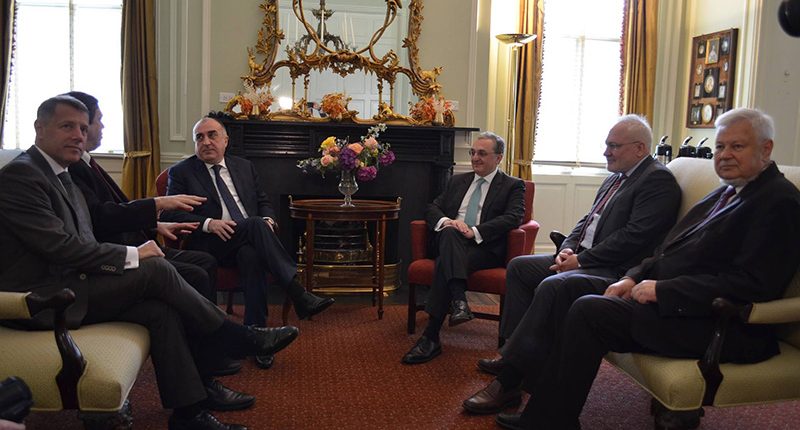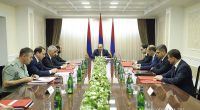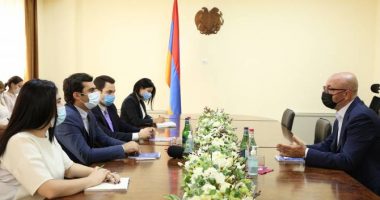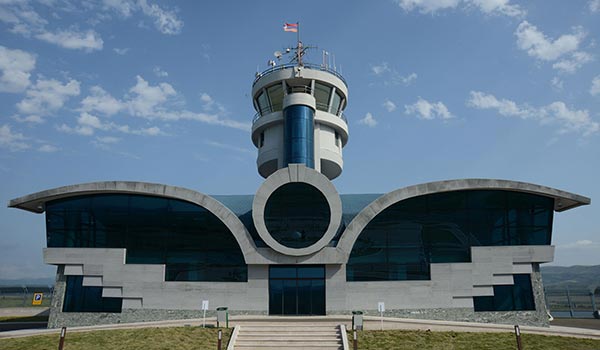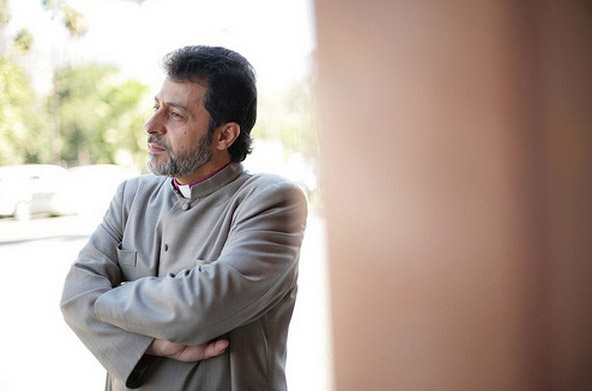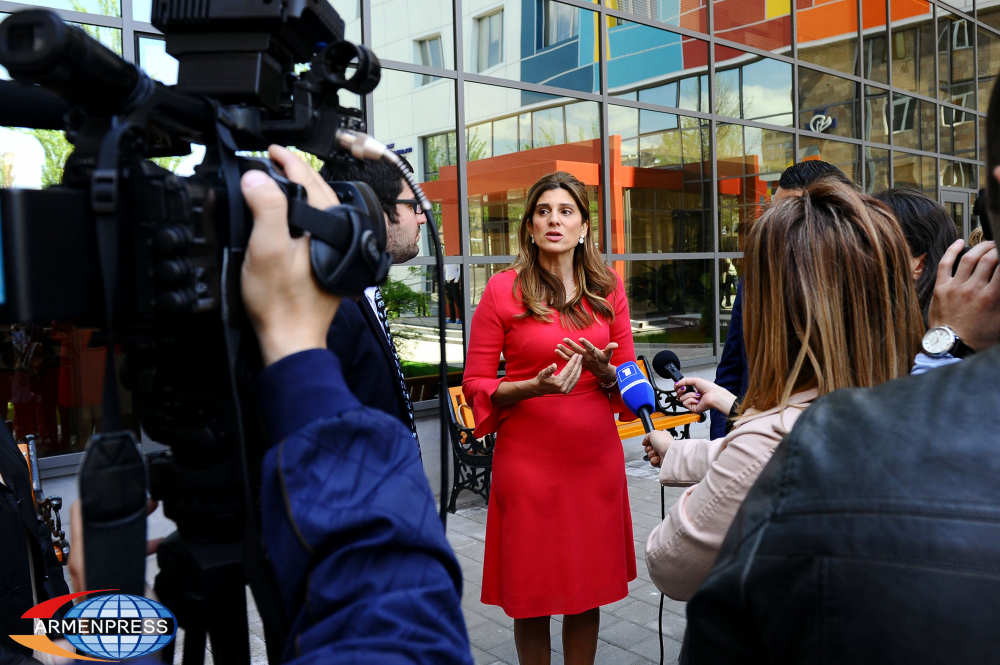WASHINGTON, DC — U.S., Russian and French diplomats urged the parties to the Nagorno-Karabakh conflict to prevent further ceasefire violations when they mediated fresh talks between Armenia’s and Azerbaijan’s foreign ministers in Washington on Thursday.
The three co-chairs of the OSCE Minsk Group said the talks focused on recent armed incidents around Karabakh and “core issues of the settlement process.” Neither they nor the conflicting parties reported major progress towards a long-awaited peace accord.
“Noting with regret recent casualties, the Co-Chairs urged the sides to take immediate measures to restore an atmosphere conducive to peace and favorable to substantive talks,” the mediators said in a joint statement.
“They called on the sides to reaffirm their commitment to observe the ceasefire strictly and to refrain from any provocative action, including the use of snipers and engineering works along the line of contact and the international border,” they added.
According to the statement, Foreign Ministers Zohrab Mnatsakanian and Elmar Mammadyarov agreed on the need to “reduce the risk of escalation” and pledged to meet again “in the near future.”
The Armenian service of the Voice of America quoted Mammadyarov as saying after the meeting that the mediators presented the two ministers with “additional substantive proposals.” He did not disclose them.
Mammadyarov also told reporters that the two sides continue to disagree on details of a peace formula which he said has been advanced by the United States, Russia and France for the last 15 years.
It calls for Armenian withdrawal from virtually all seven districts around the former Nagorno-Karabakh Autonomous Oblast which were fully or partly liberated by Karabakh Armenian forces during the 1991-1994 war. In return, Karabakh’s predominantly ethnic Armenian population would determine the disputed territory’s internationally recognized status in a future referendum.
A statement by the Azerbaijani Foreign Ministry also said that the co-chairs put forward “results-oriented proposals” at Washington but did not elaborate. It described the meeting as “positive.”
For its part, the Armenian Foreign Ministry said the mediators “shared ideas aimed at pushing the peace process forward, including in the humanitarian sphere.” Speaking to journalists in the U.S. capital, Mnatsakanian stressed the importance of strengthening the ceasefire regime in the conflict zone and thus creating an “appropriate environment” for a peaceful settlement.
Truce violations along the Karabakh “line of contact” escalated in late May and early June after several months of unusual calm. They had decreased significantly since Armenian Prime Minister Nikol Pashinyan and Azerbaijani President Ilham Aliyev first met in September. The two leaders also talked on four other occasions in the following months, raising some hopes for progress in the protracted peace process.
Mnatsakanian and Mammadyarov have also negotiated on a regular basis. Ahead of their talks in Washington the two ministers met separately with U.S. National Security Adviser John Bolton and senior U.S. State Department officials.

